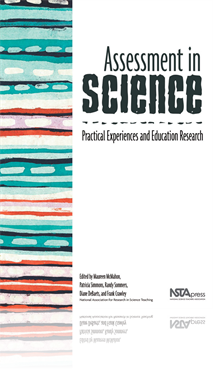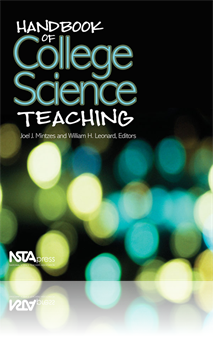All Book Chapters
Book Chapter
Professional Development and Teacher Learning: Using Concept Maps in Inquiry Classrooms
Two urban middle school science teachers used concept maps as a form of assessment in their inquiry-oriented teaching. Critical steps in this learning...
Book Chapter
Coming to See the Invisible: Assessing Understanding in an Inquiry-Focused Science Classroom
The work discussed here focused on the design of curricula that mirrored important aspects of realistic scientific practice, especially the ways in wh...
Book Chapter
Science Anxiety: Research and Action
Science anxiety has been shown to seriously impede student learning. This chapter will describe research done on science anxiety and will explain spec...
Book Chapter
New Physics Teaching and Assessment: Laboratory- and Technology-Enhanced Active Learning
For more than half a decade, two universities—North Carolina State University (NCSU) and Massachusetts Institute of Technology—have been engaged i...
Book Chapter
Developing Scientific Reasoning Patterns in College Biology
A long-held and central objective of science instruction is to help students develop scientific reasoning patterns. During the past few decades, consi...
Book Chapter
Learning Science and the Science of Learning
In 1988, at the invitation of the journal editors, the author published an article by the same title as this chapter in the journal, Studies in Scienc...
Book Chapter
The Impact of a Conceptually Sequenced Genetics Unit in an Introductory College Biology Course
In this chapter, the authors describe how they revised the genetics section of an introductory biology course to reflect current knowledge of learning...
Book Chapter
Do Introductory Science Courses Select for Effort or Aptitude?
On the first day of classes, students in introductory biology courses believe that effort is the most accurate predictor of their academic success. St...
Book Chapter
Active Learning in the College Science Classroom
Research has consistently shown that all students, including college science students, learn more when activity engaged. Engagement can occur through ...
Book Chapter
Incorporating Primary Literature Into Science Learning
Recent educational initiatives call for changes in science education that promote the development of students’ scientific skills, such as interpreti...
Book Chapter
Fieldwork: New Directions and Exemplars in Informal Science Education Research
Fieldwork can teach our students that although controlled experiments are one route to scientific knowledge, they are by no means the only route (McCo...
Book Chapter
Using Case Studies to Teach Science
Storytelling as a formal educational device arguably entered the didactic scene about 100 years ago with case study teaching at Harvard (Herreid 1994)...
Book Chapter
Poetry writing is a simple yet effective way to encourage the development of cross-disciplinary connections, creativity, and critical thinking in scie...
Book Chapter
Improving Student Attitudes Toward Biology
Osborne, Simon, and Collins (2003) found positive correlations between attitude and certain characteristics of the classroom environment, including st...
Book Chapter
Constructive-Developmental Pedagogy in Chemistry
This chapter reflects on research in constructive-developmental (CD) pedagogy having application to today’s undergraduate science classroom. Its foc...



